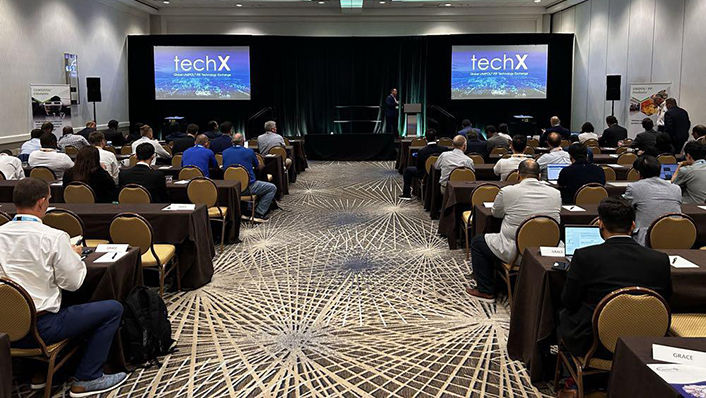Reflections from techX 2025: Advancing UNIPOL® Polypropylene Process Technology
The annual event served as a collaborative platform for discussing emerging trends, technical innovations, and shared challenges.

At techX 2025 — the chemical industry’s marquee event for UNIPOL® polypropylene technology — participants from across the global community gathered to exchange ideas, share operational insights, and explore the evolving landscape of polypropylene resin manufacturing. Here are a few takeaways:
Understanding Industry Shifts and Strategic Direction
The event opened with a look at global polypropylene (PP) industry dynamics, highlighting how shifting demand, sustainability imperatives, and regional developments are influencing resin production technology and product strategies.
“Global polypropylene dynamics are stabilizing, with demand continuing to rise and capacity growth moderating, as India emerges as a key growth driver and China maintains a leading—though slightly declining—share of global production,” said Michael Marsh, Sr Manager Industry Marketing Licensing and Services.
Exploring Innovation across the Value Chain
Several sessions focused on recent developments in catalyst and process technology, automation, and product design. Presenters shared updates on high melt flow grades, reactor-made terpolymers, and advanced pipe and film applications.
These shared interests in enhancing product performance while simplifying operations and improving efficiency show the value of this polypropylene process technology. The growth of the UNIPOL® PP technology community is further evidenced by Grace licensing 10 million metric tons per annum (MTA) of new capacity the last few years, with strong activity in China, India, the Middle East, and Southeast Asia. Over the same period, more than 5.5MTA of new UNIPOL® PP technology capacity came online, with China leading in startups.
Sustainability and Circularity
Sustainability continues to be a theme in the specialty chemicals industry, and techX 2025 highlighted how the polypropylene industry is adapting to environmental pressures and regulatory expectations. Presentations explored the broader energy transition — including the growing role of renewables and nuclear power — and how these shifts are expected to influence raw material sourcing and emissions profiles across the value chain.
One area of discussion was the disproportionate impact of raw materials on polypropylene’s carbon footprint. Internal lifecycle analysis showed that oil-derived propylene remains the dominant contributor to greenhouse gas emissions, far outweighing process-related sources. This insight is helping shape future technology development and investment priorities. Grace’s CirFlex™ catalytic chemical conversion technology was introduced as one potential pathway to support circularity goals. Compared to traditional pyrolysis oil of plastic feedstocks, CirFlex™ technology can achieve very high conversion yields of valuable products such as olefinic monomers that can be used to produce polyolefins, and it does it with a lower carbon intensity.
The conversation also touched on the evolving regulatory landscape, particularly in Europe, where stricter rules around recycled content and emissions reporting are beginning to influence technology adoption and investment decisions. These developments are prompting companies to evaluate new approaches to product design, process integration, and emissions tracking.
Operational Best Practices and Lessons Learned
Practical sessions on plant operations offered valuable takeaways on safety, troubleshooting, and turnaround planning. One session focused on best practices for plant shutdown and start-up to illustrate safety protocols and decision-making frameworks. Another explored equipment reliability and maintenance strategies, including case studies on valve challenges and compressor upgrades.
“Operating rate projections offer valuable benchmarks, with India expected to maintain strong performance due to domestic demand and government support, while regions like Northeast and Southeast Asia may face challenges from softer demand and trade constraints,” said Marsh.
Collaboration, Community, and Looking Ahead
Throughout the event, the spirit of collaboration was evident. Whether through panel discussions, technical Q&As, or networking, participants engaged in meaningful dialogue around shared challenges and opportunities. The closing remarks captured this sentiment well — emphasizing the value of relationships, shared learning, and the collective drive to improve.
As techX 2025 concluded, attendees left with new ideas, practical insights, and a renewed sense of connection. The event underscored the importance of open dialogue and technical exchange in advancing the UNIPOL® PP technology ecosystem. Participation from licensor, licensees, and equipment, additives, and AI vendors reflected a continued commitment to supporting UNIPOL® PP technology licensees and contributing to the broader conversation around innovation and operational excellence.